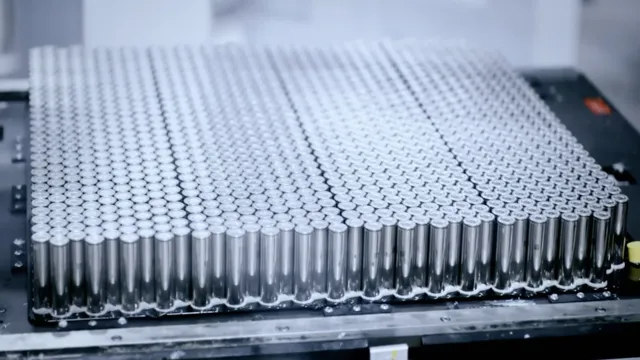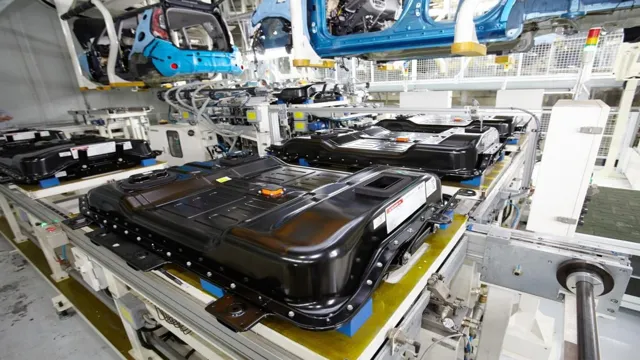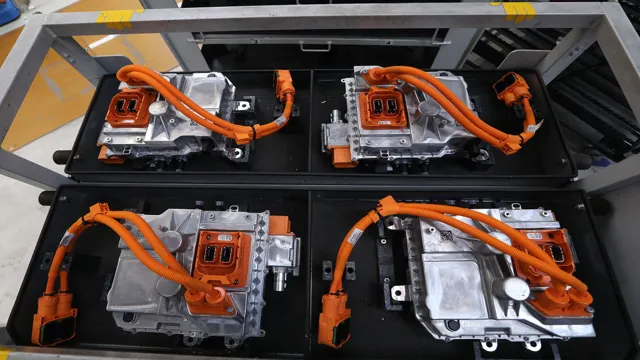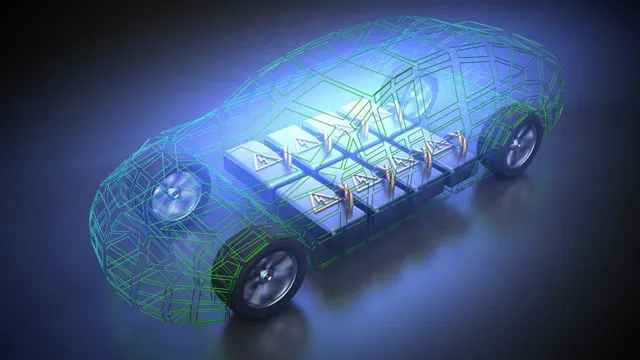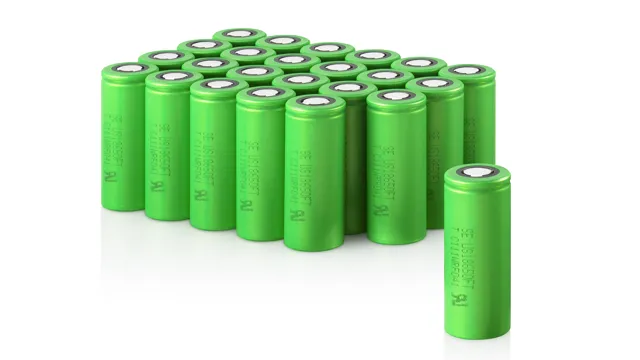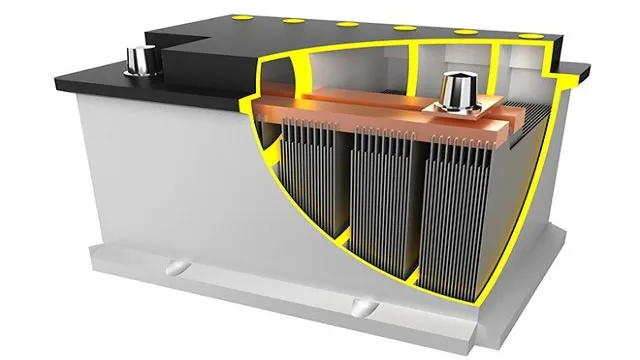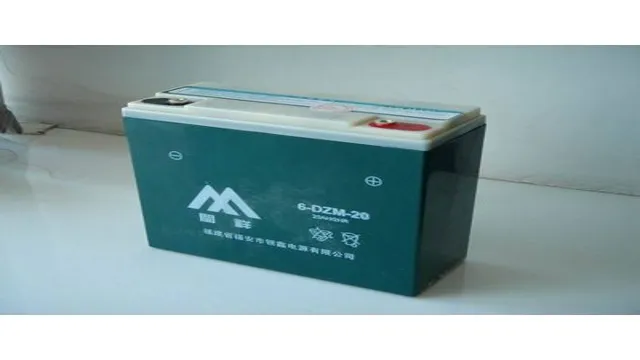Powering the Future of Transportation: A Guide to the Revolutionary Batteries Used in Tesla Electric Cars
Have you ever wondered what makes Tesla’s electric cars run so efficiently? It’s all thanks to their revolutionary battery technology. Over the years, Tesla has become synonymous with electric vehicles and has transformed the automobile industry with their state-of-the-art batteries. But what sets Tesla’s battery technology apart from the rest? The answer lies in their use of lithium-ion batteries, which have a higher energy density and efficiency compared to traditional batteries.
This allows Tesla to offer longer ranges and faster charging times, making electric cars even more convenient and accessible for everyday use. The company has also made significant advancements in battery production, using automation and cutting-edge manufacturing techniques to reduce costs and increase production efficiency. This has led to a decrease in the cost of manufacturing batteries, making electric cars more affordable for consumers.
Moreover, Tesla’s batteries are not just powering cars, they are also revolutionizing the energy industry. The company’s Powerwall and Powerpack solutions allow homeowners and businesses to store solar energy and use it when needed, reducing reliance on traditional energy sources. In conclusion, Tesla’s battery technology continues to pave the way for a cleaner and more sustainable future.
With their commitment to innovation and efficiency, it’s no wonder why they are at the forefront of the electric vehicle and energy storage industries.
Overview of Tesla Batteries
The batteries used in Tesla electric cars are among the most powerful and innovative in the automotive industry. Tesla uses lithium-ion battery packs, which are made up of thousands of cylindrical cells that work together to power the car’s electric motor. These batteries are known for their high energy density, which allows them to store more energy in a smaller space than other types of batteries.
Tesla also uses cutting-edge thermal management systems to keep the batteries cool and extend their lifespan. Furthermore, Tesla’s batteries incorporate software systems that allow users to monitor battery performance and optimize charging patterns. Overall, Tesla’s battery technology is a major factor in its success as a leading producer of electric cars, offering exceptional performance and reliability while also being eco-friendly.
Composition of Tesla batteries
When it comes to electric cars, Tesla’s battery technology is top of the line. The company uses a unique combination of batteries made up of thousands of lithium-ion cells. The primary component of the battery is the cathode, which is usually made up of metals like cobalt, nickel, and manganese.
Tesla’s batteries, however, are made with cobalt-free cathodes, which makes them more environmentally friendly. In addition to the cathode, the battery also has an anode, separator, and electrolyte. The anode is typically made up of graphite, the separator is a thin layer that keeps the cathode and anode apart, and the electrolyte is a liquid or gel that allows ions to pass between the cathode and anode.
Overall, Tesla’s batteries are highly advanced and form the backbone of its electric cars. The battery technology allows for a long range between charges, quick charging times, and exceptional performance.
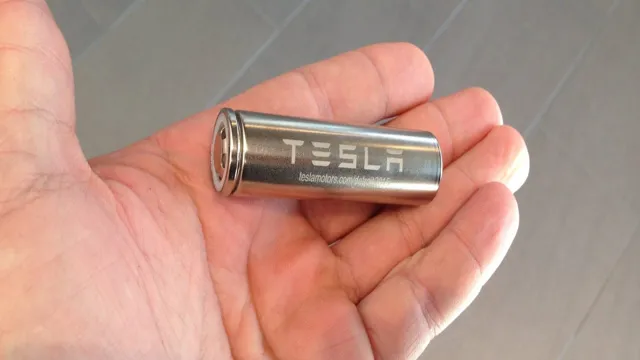
Size and Weight of Tesla batteries
When it comes to electric vehicles, Tesla is one of the most recognizable names in the market. One of the core components of Tesla’s EVs is their battery technology. Tesla uses lithium-ion batteries for their EVs, and the size and weight vary depending on the model and version.
The Model S and Model X use a battery pack weighing between 1,200 to 1,500 pounds, while the Model 3’s battery pack weighs in at around 1,000 pounds. The size and weight of Tesla’s batteries play a significant role in the car’s overall weight and performance. However, Tesla’s batteries are designed to fit efficiently into the car’s chassis, providing a low center of gravity, which contributes to the car’s stability and handling on the road.
This factor also allows for more cargo space and improves weight distribution, translating into better performance and longer driving range on a single charge. Overall, Tesla’s battery technology plays a decisive role in offering its EVs high efficiency, impressive range, and exceptional performance on the road.
Battery Capacity and Range
Tesla’s batteries are one of the primary components that power their electric vehicles. These batteries come in different sizes and capacities, with larger batteries offering more range per charge. The battery pack of a Tesla contains thousands of individual lithium-ion cells, which work together to provide power to the vehicle’s electric motors.
Tesla’s latest battery, the Model S Plaid, boasts an impressive range of over 520 miles on a single charge. However, the exact range that a driver can expect to get out of their Tesla’s battery can vary depending on factors such as driving habits, weather conditions, and terrain. Despite this, Tesla’s batteries are some of the most advanced in the industry, and their cars continue to push the boundaries of electric vehicle capabilities.
Benefits of Tesla Batteries
Batteries used in Tesla electric cars have several benefits, which make them stand out in the market. One such benefit is their high energy density, which means they are compact, lightweight, and can store more energy than traditional batteries. This enables Tesla cars to have longer ranges on a single charge, making them ideal for long-distance travel.
Another benefit is their fast charging capability that allows Tesla cars to be charged quickly, thereby reducing the time spent at charging stations. In addition, these batteries are designed to last for years, minimizing the need for replacement and reducing environmental waste. Tesla has also pioneered the use of recycled materials in these batteries, making them sustainable and eco-friendly.
Overall, the batteries used in Tesla electric cars offer superior performance, durability, and sustainability, making them a popular choice for environmentally conscious drivers.
Environmental advantages
When it comes to sustainability, Tesla batteries offer significant environmental advantages. One of the most significant benefits of these batteries is their ability to store energy generated from renewable sources like solar panels. By doing so, they can help reduce our reliance on non-renewable energy sources such as fossil fuels.
Additionally, Tesla batteries are highly efficient in their energy storage and have a longer lifespan than traditional battery technologies. This means that they require fewer replacements, reducing the amount of waste generated by battery production and disposal. Furthermore, Tesla batteries are also made using fewer scarce resources and emit significantly fewer emissions compared to traditional battery technologies.
All these factors together make Tesla batteries a more sustainable choice for energy storage, helping us move closer towards a greener, more sustainable future.
Advantages over traditional combustion engines
One of the biggest advantages of Tesla batteries over traditional combustion engines is their efficiency. Tesla batteries are designed to produce more energy with less fuel, allowing them to travel longer distances without needing a recharge. This means that drivers can save money on fuel costs and reduce their carbon footprint.
Additionally, Tesla batteries are much simpler in design than combustion engines, which have hundreds of moving parts that can wear out or break down. This means that maintenance and repair costs are much lower for Tesla battery vehicles compared to traditional cars. Another advantage of Tesla batteries is that they are very reliable.
They have a low risk of malfunction or breakdown, and typically last for many years before needing to be replaced. Overall, the benefits of Tesla batteries are clear – they offer greater efficiency, lower maintenance costs, and greater reliability than traditional combustion engines.
Future of Tesla Batteries
The future of batteries used in Tesla electric cars seems bright. Tesla is constantly working on developing cutting-edge batteries that can improve the car’s performance and range. One of the most significant breakthroughs has been the use of lithium-ion batteries that are highly efficient and reliable.
Another exciting development is Tesla’s plan to build a massive battery factory that will produce more cost-effective batteries at a larger scale. The new factory is expected to significantly reduce the cost of Tesla’s batteries, making their electric cars more affordable and accessible to a larger range of people. Additionally, Tesla is also exploring other types of batteries such as solid-state batteries that can offer even more extended range and lifespan.
With advancements in technology, it’s exciting to think about what the future of Tesla’s battery technology will hold and how it will impact the future of electric vehicles.
Research and development initiatives
Tesla is on the forefront of research and development initiatives when it comes to batteries. The company has invested heavily in improving battery technology and has vowed to make electric cars more accessible to everyday consumers. Tesla has made significant strides in battery development and manufacturing, and its latest battery technology promises to revolutionize the industry.
The company aims to develop batteries that can last up to one million miles while costing less than the batteries currently on the market. These batteries are expected to have higher energy density, which means they can store more energy in a smaller and lighter package. Tesla is also working on improving charging technology to make recharging electric cars faster and more convenient.
With these developments, Tesla is set to change the way we perceive electric cars and make them the preferred mode of transportation for millions of people.
Potential advancements in battery technology
The future of Tesla batteries is incredibly promising. With the rise of electric cars, there has been an increasing demand for better battery technology. Tesla has been at the forefront of developing innovative battery solutions, and their advancements could revolutionize the industry.
The latest Tesla batteries are more efficient, lighter, and cheaper to produce than previous models, making them more accessible to the public. Additionally, Tesla has been exploring new materials such as silicon, graphite, and lithium-sulfur compound, which could significantly increase energy storage capacity. As Tesla continues to explore new technologies, it is likely that we will see even more impressive battery advancements in the future.
With the ongoing commitment to sustainability and the environment, Tesla is leading the way towards a more sustainable future for all.
Conclusion
In summary, batteries used in Tesla electric cars are more than just a power source – they are a symbol of innovation and progress. With their advanced technology and impressive range, these batteries have paved the way for a greener future. They prove that sustainability and luxury can coexist, and that we can all play a role in saving the planet.
So the next time you see a Tesla speeding down the highway, remember that it’s not just a car – it’s a statement. And that statement is: we can all have a brighter future, if we’re willing to power up and drive on.”
FAQs
What type of batteries are used in Tesla electric cars?
Tesla electric cars use lithium-ion batteries for power.
How long do Tesla electric car batteries typically last?
Tesla electric car batteries are designed to last for around 300,000 to 500,000 miles, and can last up to 15 years with proper care and maintenance.
Can Tesla electric car batteries be recycled?
Yes, Tesla electric car batteries can be recycled. Tesla offers a battery recycling program to ensure that spent batteries are responsibly reused or disposed of.
How much does it cost to replace the battery in a Tesla electric car?
The cost of replacing a battery in a Tesla electric car varies depending on the model and age of the vehicle, but can range from $5,000 to $20,000. Tesla offers a battery replacement service for its customers.
How does Tesla ensure the safety of its electric car batteries?
Tesla uses advanced battery technology and rigorous safety testing to ensure the safety of its electric car batteries. The company also has systems in place to monitor battery health and performance in real-time to prevent potential safety issues.

